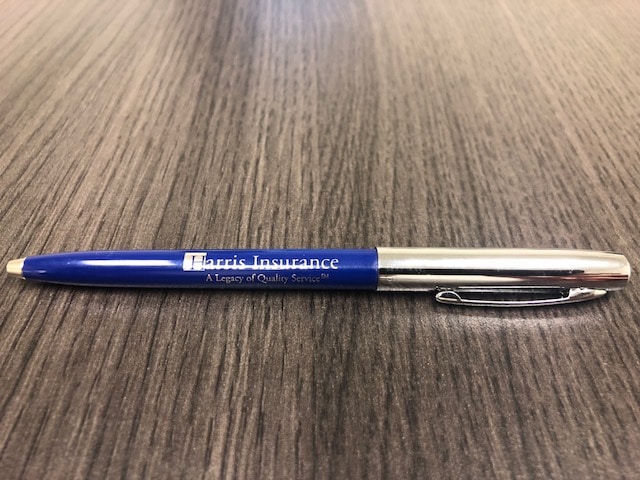
Who Pays if My Contractor Damages My Neighbor’s Home?
It’s an interesting question. If, while working on your home, the contractor you hire inadvertently damages your neighbor’s home, who is responsible for those damages?
Clearly, the neighbor isn’t to blame. They didn’t ask your contractor to put a hole in their roof or break their windows or any number of unfortunate events. They can’t possibly take on the burden of repairing that damage. It just isn’t fair.
Who is Really Responsible for Damage On Your Neighbor’s Home?
Sometimes, however, the law can seem unfair or simply vague regarding responsibility for such repairs. Essentially, it comes down to a question of responsibility and the person who is responsible for the contractor being there is…you.
Consider it from a common-sense perspective. You are the reason that the contractor is there in the first place. If the contractor abdicates responsibility for the damages, you could very well be on the hook for them.
Can a Neighbor Bring Lawsuits Against Me?
Ideally, your contractor would accept responsibility for the damages done and make the appropriate repairs as quickly as possible. Such an arrangement ensures that your neighbor doesn’t come after you for damages by filing a lawsuit, especially since such lawsuits may have much higher amounts tied to them than simply the costs of the damages.
Your neighbor might claim an injury, respiratory problems related to dust or debris, emotional damages, or other line items that seem preposterous. Regardless, if these charges are brought against you, it means that your neighbor’s lawyer thinks that there is a good chance the court will side with them when it comes to these additional costs.
In one case cited in The New York Times’ “Ask Real Estate” column, a contractor was responsible for dust being blown into a neighbor’s apartment. The contractor removed the dust, but afterward, the neighbor claimed that he damaged her stove in doing so.
The homeowner who hired the contractor offered to pay for repairs to the stove, but the neighbor insisted that the stove needed to be replaced. She’s demanding that the homeowner buy her a brand-new stove and pay for any kitchen space alterations, too. She has provided no evidence of damage, yet is still requesting that the homeowner pay for her new stove and alterations to her kitchen.
It can be tough to determine who is responsible for these kinds of problems. Much of this determination, though, lies in how responsible your contractor is.
What If Your Contractor Denies Responsibility?
Your contractor may simply state that this work isn’t their responsibility and attempt to walk away from the issue. There is an even higher likelihood of this happening if they are operating outside of the law with their business.
Nevada state law requires that contractors be licensed to run a contracting business, but some may skirt the law and operate without any licensure. In this case, it can be incredibly difficult to pin the blame on the contractor, as the fines and fees associated with operating without a license could be substantial.
It seems as though there’s no way to avoid a lawsuit from your neighbor if these issues arise! There is, of course. It’s all in how you hire a contractor.
The Right Way To Hire A Contractor
Hiring the right contractor ensures you will not be held responsible for damages they may cause to your neighbor’s property while working on your own, simply by ensuring the contract you sign is to your satisfaction.
It certainly seems simpler to just hire a family member or a friend who’s a handyman to take care of a little bit of work at your home. After all, you need the work done, they could use a little money, and the price is usually right. The catch?
You’ll likely hire someone who isn’t licensed, insured, or bonded, and who carries no liability insurance. While liability insurance isn’t required for contractors in Nevada, any contractor worth hiring is going to carry it and be able to furnish proof in writing. Hiring your bowling buddy Bill may seem like the nice thing to do at the time, but who gets stuck with the check if anything goes wrong? Not Bill.
8 Steps to Take to Hire a Reputable Contractor
These are the steps you should take to hire a reputable contractor:
- Before interviewing a contractor, ask your family and friends for referrals. They’ll have the best information on who to hire, who to avoid, and why.
- Let the contractor know that you require that they carry current licensing, permitting, insurance, and bonding documentation, and that they provide you with written proof of this documentation.
- Any contractor you interview should be glad to furnish references from prior customers, and provide you with a clearly written, detailed bid or proposal.
- Don’t sign the bid or proposal. Doing so creates a legally binding contract. Instead, request a separate contract once you have accepted a bid.
- Review the contract carefully. This is the binding document that outlines the job in total and states exactly what will be done. Make sure it includes things like definitions of liability regarding neighboring properties. This way, you have the contractors’ liability in writing.
- Be aware that their liability insurance may be limited, and understand that you may be responsible for costs incurred above specified amounts. Get the precise amount of liability insurance in the contract.
- Re-review the contract again in its entirety to make sure that it is to your satisfaction before signing.
- Sign away – only when you are completely satisfied with the conditions and have no lingering questions.
Ensure Construction Goes Smoothly With Harris Insurance
It may seem a little frustrating to have to go to these lengths to ensure your contractor is up to snuff, but ultimately, it’s your home. Any major changes, repairs, fixes, or work done otherwise should be completely up to your specifications and your standards. Additionally, you may want to have an attorney review the contract to make sure everything is in order.
At Harris Insurance, we understand that these kinds of situations can be complicated. Contact us today to learn more about our services and how we can help protect you.




